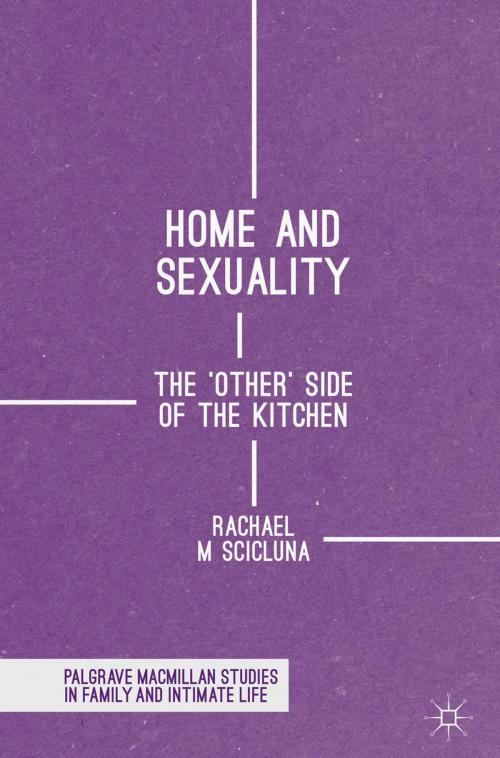Home and Sexuality
The 'Other' Side of the Kitchen
Nonfiction, Social & Cultural Studies, Social Science, Gender Studies, Sociology| Author: | Rachael M Scicluna | ISBN: | 9781137460387 |
| Publisher: | Palgrave Macmillan UK | Publication: | July 12, 2017 |
| Imprint: | Palgrave Macmillan | Language: | English |
| Author: | Rachael M Scicluna |
| ISBN: | 9781137460387 |
| Publisher: | Palgrave Macmillan UK |
| Publication: | July 12, 2017 |
| Imprint: | Palgrave Macmillan |
| Language: | English |
This book explores the meanings and experiences of home among a group of lesbians who over the past five decades have sought to create alternative intimate and public living spaces. The protagonists who enact the ethnographic narrative are a small group of older lesbians, mainly feminist activists, residing in the metropolis of London. The meaning of home and domestic space emerges from unique life histories informed by the wider social and political context, and moves from the earliest memories of their childhood kitchens to their contemporary domestic lives.
Leaping from the radical lesbian feminist collectives and squats of the 1980s to the ordinariness of home life, the kitchen emerged as a tangle of cultural norms, customs, duties, ideas, aspirations, expectations, and values that tells us about the thinking process and behaviour of this specific group of older lesbians. In this context, the kitchen brings out the experiences of social inequalities experienced by these older lesbians, mainly brought out by the hegemonic institution of heteronormativity and patriarchy.
This ethnography will be of interest to students and scholars across a range of disciplines in anthropology, sociology, geography and feminism.
This book explores the meanings and experiences of home among a group of lesbians who over the past five decades have sought to create alternative intimate and public living spaces. The protagonists who enact the ethnographic narrative are a small group of older lesbians, mainly feminist activists, residing in the metropolis of London. The meaning of home and domestic space emerges from unique life histories informed by the wider social and political context, and moves from the earliest memories of their childhood kitchens to their contemporary domestic lives.
Leaping from the radical lesbian feminist collectives and squats of the 1980s to the ordinariness of home life, the kitchen emerged as a tangle of cultural norms, customs, duties, ideas, aspirations, expectations, and values that tells us about the thinking process and behaviour of this specific group of older lesbians. In this context, the kitchen brings out the experiences of social inequalities experienced by these older lesbians, mainly brought out by the hegemonic institution of heteronormativity and patriarchy.
This ethnography will be of interest to students and scholars across a range of disciplines in anthropology, sociology, geography and feminism.















